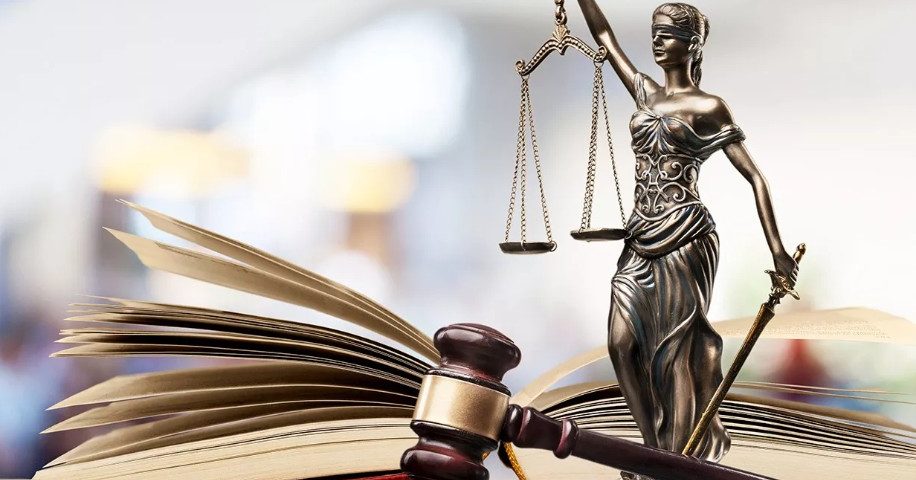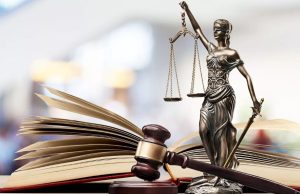TRADITION Questions: The Rule of Law

 Click here to read about this series.
Click here to read about this series.
What is it?
This month, many commencement speakers have called upon law school graduates to use their new degrees to defend the rule of law. What is the “rule of law” and how does one defend it? Rule of law is the principle that all individuals and institutions are accountable to the same laws, ensuring equality and preventing arbitrary governance. To defend the rule of law, society must control the actions of its members to ensure this accountability. How does a society do so?
Nahmanides, commenting on the first of the Ten Commandments, “I am the Lord your God,” addresses the basis for the rule of law:
This commandment, in the words of our Rabbis, is called the obligation “to take upon oneself the yoke of the Kingdom of Heaven,” for these words, [i.e., the Eternal thy God], which I have mentioned, indicate a King addressing His people. Thus the Rabbis have said in the Mekhilta: “Thou shalt have no other gods before Me. Why is this said? Because it says, I am the Eternal thy God. This can be illustrated by a parable: A king invaded a country, and his attendants said to him, “Issue decrees to us.” He, however, refused, saying: “No! When you have accepted my sovereignty, I will issue decrees to you, for if you do not accept my sovereignty, how will you carry out my decrees?” (Nahmanides, Exodus 20:2).
Rule of law requires the acceptance of a sovereign and submission to his authority. Laws are meaningless without accepting the basis for those laws – specifically, the legitimacy of the lawgiver. Within a religious context, humankind must accept God’s kingship in order for there to be law.
The book of Judges draws a similar lesson regarding temporal kingship; the absence of a human king creates lawlessness: “In those days there was no king in Israel; everyone did as they pleased” (21:25).
Without a basis for rule of law the rule of the jungle reigns. Whoever is most powerful may extract concessions, rents, and gifts from those who are powerless. Supreme Court Justice Felix Frankfurter wrote, “If one man can be allowed to determine for himself what is law, every man can. That means first chaos, then tyranny” (United States v. United Mine Workers, 1947).
Only the king’s power guarantees that other, lesser powers submit to the rule of law. In the absence of such power, everyone may do whatever he or she can get away with. The rule of law requires the sacrifice of some freedom, namely the freedom to do as one pleases, to obtain a more important freedom – the freedom from others doing whatever they please. This is difficult to achieve without an external sovereign.
The powerful must believe that they will ultimately benefit from submitting to something more powerful then them. In Judaism, this is God. In secular society, this is the system itself.
Why does it matter?
The rule of law is an ideal. It is something toward which a lawful society must constantly strive. It inevitably falls short. A system will inevitably incorporate prejudices and manipulations tilted toward some and away from others. It is difficult and costly to punish powerful criminals. They often evade punishment.
A society will fracture when it falls too short of its ideals. Marxist critiques relating to legal capture and conspiracy theories related to a deep state both reject rule of law as Pollyannaish, another opiate for the masses. They each see the powerful manipulating the system for their own ends. They both therefore seek to destroy and replace the system.
Shavuot celebrates a specific rule of law. We are all subjects of the one Sovereign who gives one Torah to us all, as if to one person with one heart. This ultimate equality before the law overcomes limitations in how this ideal might be realized in any one generation.
What questions remain?
Will a newfound valuation of the rule of law change social biases against rule followers? Will popular cultural themes that lionize the rebel and the outlaw finally face scrutiny? Will more significant potential sovereigns replace the reckless submission to “the sovereignty of the self”?
As we see wrongdoing of the powerful go blatantly unpunished, are we common folk less likely to submit to adverse judgments? How will this affect the religious persona? As moderns, do we accept Torah as a rule of law upon ourselves or is it a choice that meets our needs like everything else in a consumer society?
In classic Christian polemics, Judaism was cast as “law,” while Christianity took for itself the role of “love.” Will attempts to re-establish the rule of law bring about a re-examination of Judaism and Jewish ideas?
What was the role of Egyptian servitude and Pharaoh’s yoke in our acceptance of the yoke of heaven at Mount Sinai?
Chaim Strauchler, rabbi of Rinat Yisrael in Teaneck, is an Associate Editor of TRADITION.
